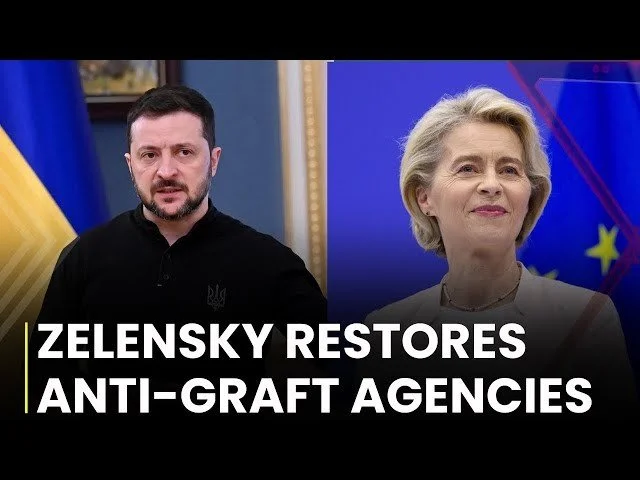Zelenskyi's Anti-Corruption Decision and Why Leaders Need Criticism from Their Supporters
I remember visiting former Ukrainian president Viktor Yanukovych's lavish residence after his ouster in the wake of the Orange Revolution.
His opulent compound and collection of exclusive cars stood as yet another reminder to Ukrainians of how often their political leaders have used their power to benefit themselves through incredible levels of corruption.
Private picture former President Yanukovych's former residence
Then something remarkable happened.
In their exhaustion with corrupt leaders, Ukraine chose a former comedian. I, like probably many, struggled to take him seriously, but then came February 24, 2022. When offered evacuation to safety as Russia began their war of aggression and marched toward Kyiv, Zelensky said, "I need ammunition, not a ride."
“For a people used to political leaders who focus on their self-interest, a leader ready to die for his country was (and is) a remarkable thing. ”
And Zelensky has proved his commitment time and time again. So I'm writing this with the backdrop that I have an enormous sense of respect for Zelensky.
The Criticism and Why it Matters
For those who didn't follow the story, Zelensky received massive criticism for signing into law legislation that seemingly dismantled the independence of the anti-corruption authority in Ukraine.
The criticism came both from his own people and from Ukraine's allies like the leaders of the EU. And it ultimately led to him backtracking on the decision.
So why do I believe the criticism of Zelensky was important, and why does that matter to organizations?
The first thing is, of course, the importance of the corruption authority's independence.
But the second thing, and the focus of this article, is that one of the biggest dangers for an organization (or nation) is when we can't critique leadership decisions because we believe the mission of the leader, the movement, or organization is so important that any criticism should be silenced because it could hamper success. This also connects with our tendency toward elevating and "worshipping" leaders. Yet no leader is perfect, and every one of us will be tempted to act in our own self-interest or make short-sighted decisions, and needs to be called out.
Reading Jake Tapper and Alex Thompson's book Original Sin: President Biden's Decline, Its Cover-up, and His Disastrous Choice to Run Again about the many people who saw that things weren't right but still chose to stay silent or even maligned anyone who brought criticism against Biden is a case in point.
How it shows up in organizations
And we can see the same thing at play in organizations all the time. Senior teams where everyone knew a critical decision was flawed, but no one spoke up because the CEO was seen as visionary and the company mission (or the quarterly numbers) was too important to risk. Healthcare companies where team members witnessed a toxic culture but remained silent because "we're saving lives."
As Professor Guido Palazzo told me in an interview and highlights through numerous examples in his fantastic new book The Dark Pattern, large-scale corporate scandals require the participation of people like you and me. And sometimes that participation is our choice to stay silent.
But here's what I've learned: The success of any cause—whether it's defending democracy, developing life-saving treatments, or building critical infrastructure—depends not just on perceived performance, but on our ability to maintain cultural health that rejects corruption and allows for lasting success.
The power of criticism from supporters
What impressed me about the Ukraine situation wasn't just that people spoke up—it was that the criticism came from many of those who most wanted Zelensky to succeed: his own supporters and closest allies. They criticized not because they opposed him, but because they believed in the cause so deeply that they couldn't stay silent when they saw potential harm.
“For any organization, movement, or leader to stay healthy, we must maintain a culture where the people who care most about our success are empowered to voice concerns. ”
Because ultimately, sustainable success requires not just short-term performance, but the cultural health that enables us to keep performing with integrity over time. That is why the third habit in my book You Can Culture is Get Listening—offering practical tools leaders can use to break the silence and solicit difficult but vital feedback.
I want to end with a question for every leader and leadership team: Are you creating conditions where your biggest supporters feel that they are welcomed to call you out when you stray from the values you have committed to uphold?



